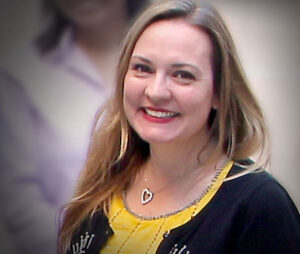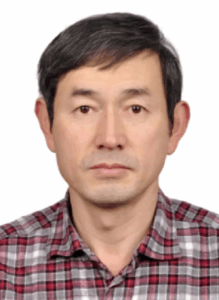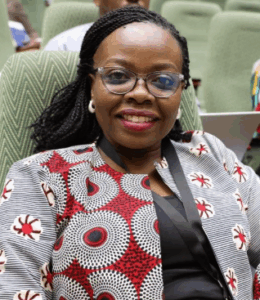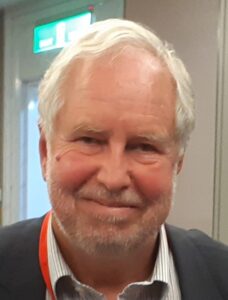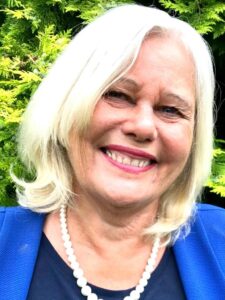 This is the fifteenth in the series of short statements from candidates in the coming CODATA Elections at the General Assembly to be held on 17-18 October 2025. Pam Maras is a candidate for the CODATA Executive Committee as an Ordinary Member. She was nominated by the International Union of Psychological Science.
This is the fifteenth in the series of short statements from candidates in the coming CODATA Elections at the General Assembly to be held on 17-18 October 2025. Pam Maras is a candidate for the CODATA Executive Committee as an Ordinary Member. She was nominated by the International Union of Psychological Science.
Pam Maras PhD, CPsychol FBPS, CSci
I am delighted to be nominated by the International Union of Psychological Science (IUPsyS) as a nominee for a second term as an ordinary member of CODATA Executive Committee
IUPsyS is a full and active member of the International Science Council (ISC), and is the global body for psychology and is unique in its convening power. Over two million psychologists are represented by IUPsyS national and regional members, all of whom use and/or collect data. I was elected the first female President of IUPsyS 2018-2022 and currently serve as Past President on its Executive Committee. My time working with IUPsyS, has included work on capacity building across regions, publications and communications, responses to public issues and more widely IUPsyS responses to disaster and other humanitarian situations.
In this short statement, I have briefly outlined my background, philosophy and potential contribution to CODATA.
BACKGROUND
Academic/Professional background
I am a Chartered Scientist, Chartered Psychologist and Fellow of the British Psychological Society. I am Emerita Professor of Social and Educational Psychology at University of Greenwich, London where I held senior and national roles including Director of Research and Enterprise and Chair of an independent committee for research integrity and ethics.
Research
Initially an experimental social psychologist, my research activity for the last 15 years has mainly been on the application of psychological science in education including on the cross cultural relevance of psychometric tests and interventions for adolescents with behaviour problems and large cross national studies in Africa, Asia, China, Europe, Latin America and New Zealand as well as interdisciplinary collaborative projects including with engineers for example, on the involvement of young people in STEM subjects at University; computer scientists for example on gender; climate scientists for example, on behaviour following interventions to reduce carbon in domestic situations; economists for example on young people’s attitudes to money and neuroscientists on AD/HD. I have obtained significant research funding including from the EU and UK Research Councils and Charities including Leverhulme, Nuffield, charity arms of Football Cubs and multinational companies and Government agencies. I have had policy involvement arising from my research and expertise. My publications were ranked excellent/outstanding in the last UK research assessment exercise. I am currently advising on a global project in eight geographic areas across continents on interoperability and curation of data and measures of young people’s anti-social behaviour and its impact.
PHILOSOPHY
I take a principled approach to equality in science; ethical open access and interdisciplinary collaboration is best achieved by cooperation, making high quality data work for cross-domain grand challenges. I am Committed to Open Science and research integrity in all areas of science, including the Social Sciences. The promotion of data policy and interoperative solutions that ensure rigour and policy for data use, maximises the combined resources of different disciplines and is essential to Science led policy in our current fragile eco/geopolitical world.
CONTRIBUTION TO CODATA
If re-elected I would expect to continue to engage positively to ensure CODATA meets its mission at the disciplinary, interdisciplinary and public and policy levels.
Disciplinary level
If re-elected I would hope to facilitate the involvement of psychology with CODATA through IUPsyS on projects related to the CODATA mission particular on Cross Domain Challenges; it is here where the involvement of social science disciplines, especially psychology will add value to outcomes. Specific examples include AI and issues including bias, fairness, transparency, accountability, and ethics; interoperability, in particular where data are not “conventional”, and other data issues that are pertinent to psychology and many other scientific disciplines including replicability and the potential loss of validity unless clear principles are taken on and underpin data across disciplines.
Interdisciplinary level
The involvement of psychology and other social sciences in CODATA can only add to CODATAs considerable achievements so far. For example, the adoption and use of FAIR principles in social sciences is mixed, this is particularly problematic when interventions and policy comes from the social sciences. Psychology and psychologists including myself are already collaborating with scientists in other areas of basic and applied science and policy. My experience in this area will allow me to further support CODATA in increasing the number of ISC Scientific Unions that engage with CODATA. In my current tern on CODATA I have been involved with setting up the Scientific Unions Forum, I would hope to continue with this activity.
Public and policy
My experience and work in developing policy and in behaviour change will allow me to contribute to CODATA to maximise the implementation of policy on data. The engagement and ‘buy in’ by those outside the “scientific community” or that are in disciplines not engaged with CODATA could be advanced by simple strategies. For example, via simple Policy Briefs for ‘non-experts,’ in which outcomes are accessible, relevant and useful for public good.
CONCLUSION
In this brief statement I have summarised my background, my philosophy and a few of the areas where I might serve CODATA.
In my current term, as a member of a large Scientific Union, I was one of the few social scientists on the Executive Committee. It would be a privilege to serve CODATA again and support the continuation of its important work. I look forward to attending International Data Week and meeting colleagues in Brisbane.

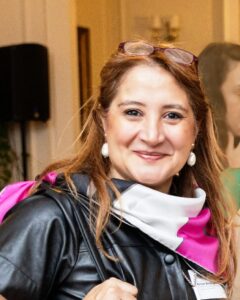
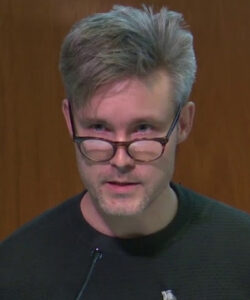
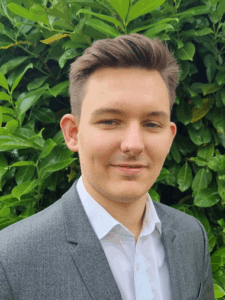
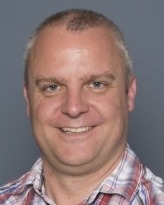 This is the eleventh in the series of short statements from candidates in the coming CODATA Elections at
This is the eleventh in the series of short statements from candidates in the coming CODATA Elections at 